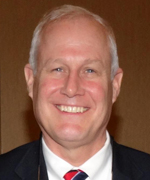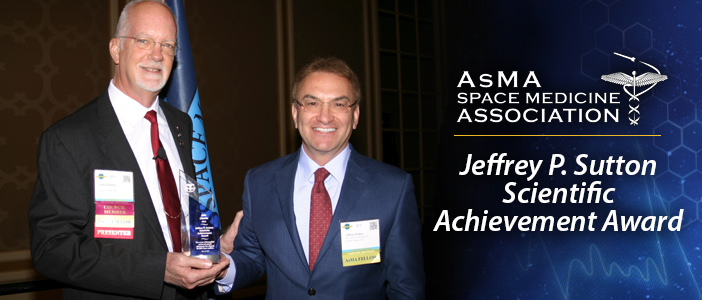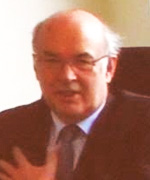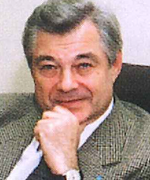 Jay C. Buckey, Jr., M.D.
Jay C. Buckey, Jr., M.D.
The 2016 Space Medicine Association Jeff Sutton Scientific Achievement Award was presented to Jay C. Buckey, Jr., M.D., who is a Professor of Medicine at the Geisel School of Medicine and Adjunct Professor at the Thayer School of Engineering at Dartmouth College.
Over his 30-year career, he has made substantial scientific contributions to space life sciences and space medicine. He is an expert in space physiology, with close to 100 papers and a standard textbook entitled Space Physiology published by Oxford University Press. Several of his scholarly papers have been highly influential, including the publication by Buckey et al in the Journal of Applied Physiology 1996;81(1):19-25 showing for the first time a drop in central venous pressure in astronauts during space flight.
Dr. Buckey co-edited the book The Neurolab Mission: Neuroscience Research in Space (NASA SP-535), detailing the scientific work from STS-90 when he flew as a payload specialist astronaut-physician. In addition, Dr. Buckey has been integral to 14 space flight hardware development projects, and has been the principal investigator on numerous federally-funded research grants supported by NASA, the National Space Biomedical Research Institute (NSBRI), National Institutes of Health and Department of Defense.
Dr. Buckey has served as the Team Leader of the NSBRI Technology Development Team and is currently Associate Team Leader of the NSBRI Cardiovascular Alterations Team. He was also a flight surgeon with the U.S. Air Force Reserve for eight years. His honors include the Joe Kerwin Award from AsMA and the Scientific Achievement Award from the Space Medicine Association.





